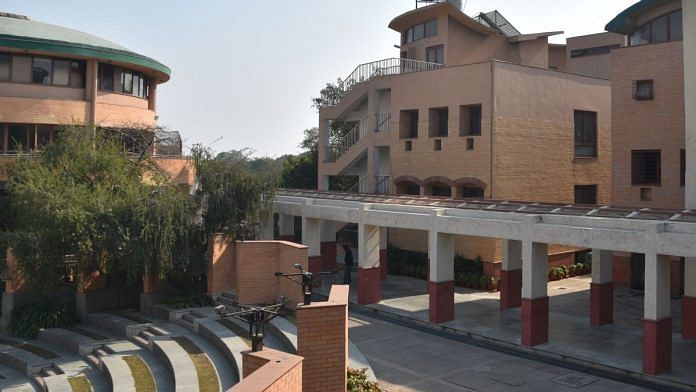New Delhi: The Department of Personnel and Training (DoPT) has pulled up central government ministries for not furnishing data that would help the Modi administration defend the 60 per cent quota for children of top officials at Delhi’s Sanskriti School.
The quota is applicable to children of ‘Group A’ officers, who form the top rung of government jobs and comprise members of the IAS and IPS, among other civil services. The Modi government has to file a reply in the Supreme Court about it.
The DoPT had asked ministries for the number of officers transferred to New Delhi in the last five years, as the data is expected to help the government justify the quota as a necessity for officers with unpredictable postings.
“It has been observed that year-wise data of the number of officers of the All India Services and officers working under central government coming to Delhi on transfer/central staffing scheme (CSS) has been received from very few ministries/departments,” the DoPT said in an office memorandum (OM) issued Wednesday, 9 October.
The information, the memorandum added, is required in connection with a 2016 case pending in the Supreme Court. The case pertains to a four-year-old Delhi High Court decision to quash the reservation policy of the Delhi school, which was stayed by the Supreme Court after the government challenged it, the DoPT said.
“The Delhi High Court order was stayed by the Supreme Court after the government challenged it in court, but the Attorney General had asked for all the details on the number of officers who come to Delhi, which are yet to be furnished by ministries,” a DoPT official said. “The information would be important for strengthening the government’s case.”
In 2015, a two-judge bench of the Delhi High Court struck down the quota in the high-profile school, which is run by the Civil Services Society, an NGO formed by senior civil servants and their spouses, on the grounds that it betrayed the principles of encouraging an inclusive education system.
“Reserving seats for a particular branch of the Indian services disadvantages children of persons engaged in other branches of the Indian services,” the court had said.
Also read: How to work like IAS officer — lessons taught to 8 lateral entrants recruited by Modi govt
‘Unpredictable postings’
Founded in 1998, Sanskriti School reserves 60 per cent of its seats for children of Group A government officers, 10 per cent for the general public, 5 per cent for staff, and 25 per cent for children from the Economically Weaker Section (EWS).
However, when the Centre moved the Supreme Court against the Delhi High Court order, a bench headed by then-Chief Justice of India T.S. Thakur stayed the order.
The DoPT had contended that the school was created for the very purpose of catering to civil servants working at the Centre on deputation.
“As civil servants, we have very unpredictable postings… We are shifted to the Centre sometime during the mid-academic year,” said a senior IAS officer working at the Centre. “For this reason, we do need a school that will give our children preference without asking for an exorbitant amount.”
Months after the Delhi High Court judgment, the government had floated a proposal for having more Sanskriti-like schools across the country.
The Kendriya Vidyalayas “do not fulfil the objectives to resolve the problems of transferable central government employees”, the draft policy, formulated in 2016, had said.
Also read: Now, IAS officer posted in NITI Aayog quits over transfer to northeast



